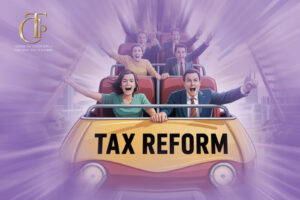Behaving ethically should be a personal goal for every tax professional—but it is also required by law. To help guide you, the Office of Professional Responsibility (OPR) publishes a document called Circular 230 that covers “Regulations Governing Practice before the Internal Revenue Service.” Certain professionals, such as enrolled agents (EAs) and Annual Filing Season Program (AFSP) record holders, consent to be governed by Circular 230 as part of their status or program. Regardless of your title or credentials, all tax professionals should familiarize themselves with ethical standards to ensure they are protecting themselves and looking out for the interest of the taxpayer.
When deciding whether to accept a tax engagement, an important factor to weigh is whether there is a limit to the type or the scope of work that is permitted. Based on your credentials and experience, are you equipped to handle the tax work that will be involved? To help you answer that question, this blog will explore two key ethical topics: unauthorized practice of law and competence.
Unauthorized Practice of Law
When we do tax planning, we need to be aware of activities that could creep into the territory of “practice of law.” Examples include advising on liability issues, advising businesses on selecting an entity type, filing documents with the U.S. tax court, or similar representation work. The precise definition of practice of law varies greatly from state to state. For instance, in California the state code simply says that no person shall practice law in California unless the person is an active licensee of the state bar. This framework is fairly vague and leaves a lot of room for interpretation compared to some stricter states.
Engaging with the U.S. Tax Court is a fairly common scenario. In order to be safe and to ensure the client gets the best representation possible, a general rule of thumb is not to file or prepare any documents related to a court case, since that can easily be construed as the practice of law. One example of precedence comes from a bankruptcy court case. A tax professional preparing a bankruptcy petition for a client actually made a legal analysis when completing the form, and that was deemed unauthorized practice of law by the tax court in California.
Competence
A second major consideration is the question of competence. When an engagement starts getting into sophisticated areas of tax law, we should pause and honestly weigh our expertise in that area. The IRS states that you must possess the necessary competence to “practice” before the IRS, which generally includes tax planning. This means you must have the appropriate knowledge, skill, thoroughness, and preparation necessary for the engagement.
When you do a discovery session with a prospective client and you see that they are engaging in transactions or activities that you have no previous experience with or specialization in, that is the right moment to press “pause.” Say, for instance, a potential client is involved in cross-border transactions for a business that has activities in the U.S., Canada, and Mexico. Each of these countries will have unique regulations, not to mention the particularities of the states and provinces involved. If you have no history of dealing with cross-border transactions, this might be the time to seek out an expert.
What are your options here? A straightforward one is to refer the taxpayer to someone else. One of the benefits of having access to a network like the American Institute of Certified Tax Planners is that you can build relationships with other tax professionals who have different areas of expertise than you. Another option is to work together—you may opt to handle most of the tax planning process and ask the cross-border transaction expert to act as your advisor. Lastly, you may decide that this is an area you would like to gain more expertise in, and you might use this as an opportunity to seek further education. AICTP can provide seminars and other educational resources to help you. Of course, if you opt for this last route, you will want to weigh whether it is actually feasible to gain the amount of expertise you need to handle the engagement in the amount of time you have.
When it comes to competence, the key is to recognize that there is a gap in your knowledge and to you make an intentional decision on how to handle it—whether to refer the client completely, to find a partner with greater expertise in that area, or to take an educational deep-dive yourself.
Summary
Deciding whether to accept a tax engagement boils down to much more than availability and profitability. Tax professionals have a responsibility to consider the ethical aspects of any engagement. Weighing factors like competence and unauthorized practice of law prevents you from getting into a messy situation and ensures your client is receiving the support they need. Complex or challenging tax engagements should be entered into thoughtfully and with due preparation. To increase your knowledge in niche areas of tax law and expand your potential client base, sign up to become a Certified Tax Planner today.







